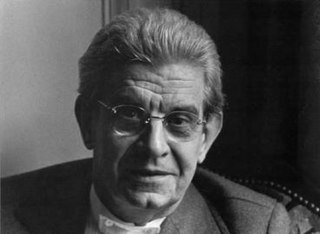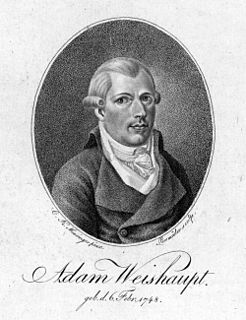A Quote by Jacques Lacan
We emphasize that such a form of communication is not absent in man, however evanescent a naturally given object may be for him, split as it is in its submission to symbols.
Quote Topics
Related Quotes
One thing that has helped me personally in the past was to stop interfering with the people around me and getting frustrated when I couldn’t change them. Instead of intrusion and passivity, may I suggest submission? Some people make the mistake of confusing “submission” with “weakness”, whereas it is anything but. Submission is a form of peaceful acceptance of the terms of the universe, including the things we are currently unable to change or comprehend.
Never let yourself think that because God has given you many things to do for Himpressing routine jobs, a life full up with duties and demands of a very practical sort---that all these need separate you from communion with Him. God is always coming to you in the Sacrament of the Present Moment. Meet and receive Him there with gratitude in that sacrament; however unexpected its outward form may be receive Him in every sight and sound, joy, pain, opportunity and sacrifice.
I declare and I challenge all mankind to contradict my declaration, that no man can give any account of the order of Freemasonry, of its origin, of its history, of its object, nor any explanation of its mysteries and symbols, which does not leave the mind in total uncertainty on all these points. Every man is entitled therefore, to give any explanation of the symbols and a system of the doctrine that he can render palatable.
It is an absolutely vain endeavor to attempt to reconstruct or even comprehend the nature of a human being by simply knowing the forces which have acted upon him. However deeply we should like to penetrate, however close we seem to be drawing to truth, one unknown quantity eludes us: man's primordial energy, his original self, that personality which was given him with the gift of life itself. On it rests man's true freedom; it alone determines his real character.
However baby man may brag of his science and skill, and however much, in a flattering future, that science and skill may augment; yet for ever and for ever, to the crack of doom, the sea will insult and murder him, and pulverize the stateliest, stiffest frigate he can make; nevertheless, by the continual repetition of these very impressions, man has lost that sense of the full awfulness of the sea which aboriginally belongs to it.
So far as the personality is still potential, it can be called transcendent, and so far as it is unconscious, it is indistinguishable from all those things that carry its projections...that is, symbols of the outside world and the cosmic symbols. These form the psychological basis for the conception of man as a macrocosm through the astrological components of his character.
Happiness has to be installed in each person as a state of affairs completely cut off from the process that brought it about and, in particular, from the real situation. Man has to be affected with happiness. It is a tonality given to him. Contradiction: if one does take care to give him happiness, it is because he is a free creature--but in order to give it to him, one turns him into an object.
All that is limited by form, semblance, sound, color is called object. Among them all, man alone is more than an object. Though, like objects, he has form and semblance, He is not limited to form. He is more. He can attain to formlessness. When he is beyond form and semblance, beyond "this" and "that," where is the comparison with another object? Where is the conflict? What can stand in his way? He will rest in his eternal place which is no-place. He will be hidden in his own unfathomable secret. His nature sinks to its root in the One. His vitality, his power hide in secret Tao.
In fact a man in love or one consumed with hatred creates symbols for himself, as a superstitious man does, from a passion of conferring uniqueness on things or persons. A man who knows nothing of symbols is one of Dante's sluggards. This is why art mirrors itself in primitive rites or strong passions, seeking for symbols, revolving round the primitive taste for savagery, for what is irrational (blood and sex).
We may gamble on outsmarting the law; we may even gamble on the leniency of man and the mercy of God-but no man ever won a gamble with his own conscience. Even should he think he has beaten his conscience into submission, his misdeeds still leave their mark upon him. Anyone who gambles against this fact has already lost his gamble.




































